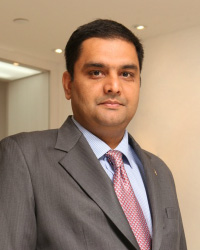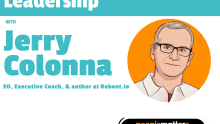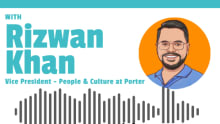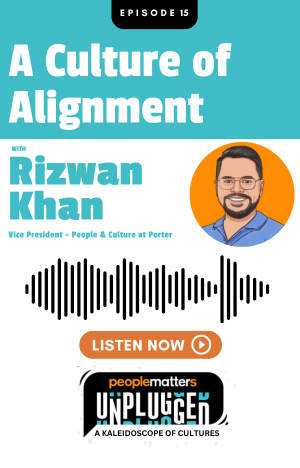The Singapore Maritime Foundation's Executive Director Tan Beng Tee on levelling up maritime jobs

As the nature of work changes, driven by digitalisation and other external pressures that date back to before the pandemic but have since been accelerated, multiple industries around the world are being pushed to level up the way jobs and talent management are viewed. How is this working out for low-profile, traditional-minded industries such as the critical but frequently overlooked maritime sector?
People Matters asked Tan Beng Tee, Executive Director of the Singapore Maritime Foundation, about what the industry needs most right now and the direction that talent leaders need to take. One of the challenges being faced by the workforce, she shared, is that domain knowledge is no longer sufficient. “You have to augment the people with new skills,” she said. “Someone working in the marketing department might have been highly siloed, but now they need to understand data analytics. Someone doing technical work might have to acquire new skills in IT.”
Another common challenge is that the workforce is aging, and not being replaced as younger people are not interested in the industry—although the pandemic has tilted that somewhat, with graduates becoming more open to working in the maritime sector.
However, in this industry, Tan said, age tends to correlate to the length of a person's stay with a company. Older workers are more likely to stay on, but younger candidates seldom remain for more than three years—nor do they return to the industry after leaving.
Attitudes to manpower must evolve in response
These challeges mean that HR practitioners in the industry have to view their work quite differently. In the past, the prevailing attitude among maritime HR functions was that they are primarily recruiters: their function is simply to bring people into the company, as many as possible and as quickly as possible to counteract the constant churn at junior levels.
“The question is, how do you ensure that the people you bring into the company will continue to stay on?” Tan said. She shared that now, many companies are beginning to take a much more structured approach to talent management.
Some are appointing Chief Human Resources Officers for the first time; others are reviewing what the HR function actually needs to do.
“The issue is how HR departments look at themselves,” she said. “Do they look at themselves as recruiters, or do they look at themselves as talent management? If they are recruiters, they are just looking for warm bodies to fill a vacant space. But if they look at talent management, the whole ambit comes in from mentorship to career development.”
In addition, she suggested, companies also have to develop a pool of management talent—people who are brought on as management associates and trained to play a part in retaining and developing employees. All these strategies are critical for attracting and retaining the new talent that the industry needs. Candidates, whether fresh graduates or experienced career switchers—or even people already in the industry who are changing jobs or employers—want to know what is in store for them. “They want to know how their career can be more rewarding,” she said.
She shared that SMF has introduced a number of programmes to help maritime HR leaders deal with the industry's changing needs, including guided workshops, platforms where they can share best practices, and networking programmes.
Changing mindsets through learning and interaction
One common challenge is that the maritime industry is a fairly conservative one, slow to change, and the demographics of the workforce reinforce this mindset—hence there can be resistance to upskilling or to new management methods.
“There must be a continuous effort to demonstrate that things are moving on and that there is a need for change in order to respond to the industry better,” Tan said. “One of the ways to do this is to offer courses and encourage people to take up learning. Another way, which some companies are practising, is peer learning—to pair people with different skills together.”
For example, she said, a fresh graduate with knowledge of new digital marketing methods but no technical skills might be paired with technical staff who do not have marketing knowledge. This can also serve as a form of mentorship, where the senior person in the pair can train the junior person.
“Over time, they will learn from each other. This approach will take some effort, but hopefully, when two people are co-driving the same effort, they will both feel challenged to do better.”
At the same time, she explained, companies and industry associations like SMF are putting effort into making it easier for young people to enter the industry via internships. They are carrying out research to demonstrate the global nature of the industry and the breadth of the ecosystems comprising it, in order to raise awareness of the kind of opportunities available.
How else can the industry adapt?

For additional perspective on the industry's transformation and how jobs and people are adapting, People Matters asked Nakul Malhotra (right), Vice President of Open Innovation, Marine Products, at Wilhelmsen Ships Service, to share some of his observations. The maritime industry, he agreed, is somewhat slower to embrace digital transformation than many other industries such as aviation, automotive, or even financial services—but that has also created an opportunity to learn from how those other industries have created positive outcomes.
“The first step is to increase awareness and understanding of what exactly is this industry, where it fits in the global paradigm, and where it fits into an individual's life, especially for young people,” he said. “Pure tech has succeeded at this, making it cool to be part of technology companies. Now, the same thing is gradually happening with very traditional industry sectors.”
The second step, he said, is about breaking down traditional mindsets—not just within the industry, but between the industry and other sectors. “It is the ability for domain experts within the industry to be open to connecting with and working with members of other industries. Increasing activity and capital within the startup space in the maritime industry is bringing up startups that create innovative solutions, that give the industry a feel of vibrancy. Those are very successful patterns we've seen in other industries that are now beginning to emerge here.”
And the third step is about making it comfortable for people to stay relevant in the industry. “A lot of it is about minor tweaks and additions, so that people who are not digital natives will be comfortable working in a digital environment. It is about breaking down barriers, so that even though you're not a programmer, you should be comfortable working in an environment with programmers.”
All these changes are not about hard technical skills, Malhotra pointed out, even though maritime is a technical industry. It is about the ability to navigate unfamiliarity and adapt, to find new—or old—solutions to new problems. And that, he said, is going to be a challenge for recruiters.
“Recruitment in this transformation age is going to be very interesting, because most recruiters and most recruitment policies so far have always focused on hard skills,” he said.
“So my challenge to recruiters is, what proxies can now be used for determining curiosity, problem solving, or creativity? Those are the things that will really determine the successful candidates because ultimately, those are the characteristics that will help people navigate uncertainty and complexity.”














